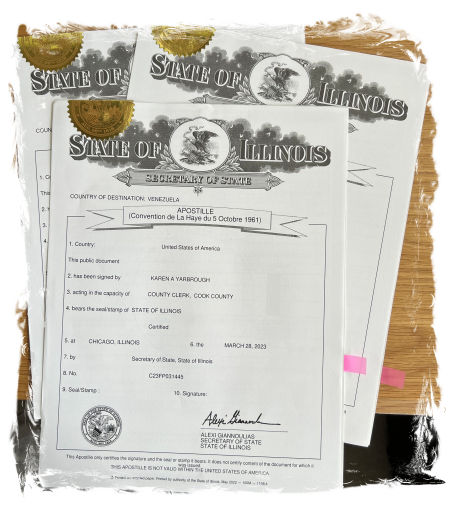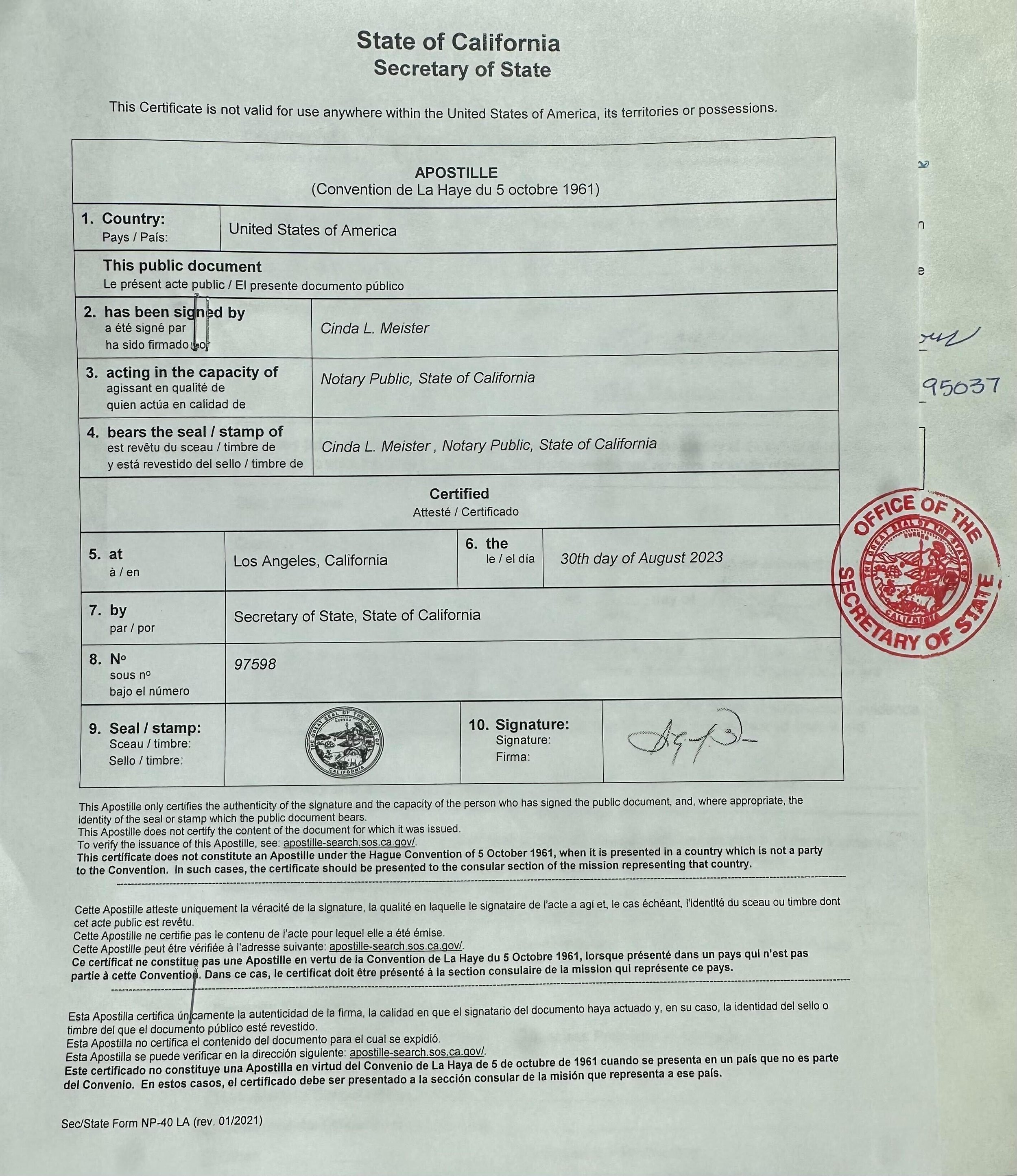Recognizing the Apostille Process: A Comprehensive Overview to International File Verification
Browsing the elaborate landscape of global document authentication can be intimidating without a clear understanding of the apostille procedure. This overview diligently describes the needed actions, from identifying which files require certification to submitting them for confirmation by the Competent Authority. Comprehending the importance of an apostille and acknowledging possible pitfalls, such as incomplete submissions and language barriers, can dramatically improve the authentication journey. What exactly defines an apostille, and why is it so vital for papers predestined for Hague Convention nations? These inquiries create the structure of our expedition into this necessary legal procedure.
What Is an Apostille?
An apostille is an official certification that verifies the credibility of a record for use in another country. This certification, issued by a marked authority in the country where the document originated, makes certain that the paper is acknowledged as legitimate and genuine in the international sector. The procedure of acquiring an apostille involves several steps, including the confirmation of the paper's signatures, seals, and stamps by appropriate governmental bodies.
The apostille offers as a worldwide identified type of authentication, implemented by the Hague Convention of 1961. This treaty, formally referred to as the Hague Convention Eliminating the Need of Legalisation for Foreign Public Files, standardizes the procedure of file qualification amongst member nations. The apostille itself is a standardized certification which contains particular info, such as the issuing authority, the nation of origin, and the date of issuance.
It is very important to note that not all documents are qualified for an apostille. Usually, public documents like birth certifications, marriage licenses, court orders, and instructional diplomas get this certification. Exclusive documents, such as agreements and agreements, may require registration and additional steps to certify.
Significance of Apostille
Recognizing what an apostille is establishes the stage for valuing its importance in global dealings. houston tx apostille. An apostille, essentially a kind of accreditation issued by an assigned authority, confirms the credibility of a document for usage in international nations that are notaries to the Hague Apostille Convention. This standard procedure eliminates the demand for further legalisation by consular offices or consulates, thereby improving international deals
The significance of an apostille can not be overemphasized. It guarantees the credibility and acceptance of important records-- such as birth certifications, marriage licenses, and educational diplomas-- across boundaries. For businesses, it helps with the smooth conduct of worldwide profession, mergings, and procurements by supplying a relied on method of file verification. This decreases administrative difficulties, saving both time and sources.
Additionally, an apostille improves lawful safety and compliance. Federal governments and organizations can confidently count on the credibility of documents birthing an apostille, reducing the danger of fraud and misstatement.
Documents That Need Apostille
When participating in global deals or legal matters, details files usually demand the authentication given by an apostille. This ensures their recognition and approval in nations that are notaries to the Hague Apostille Convention. Frequently, personal files such as copyright, marital relationship certifications, and death certifications require an apostille, particularly when they are made use of for procedures web link like immigration, marriage abroad, or global probate matters.
Educational files are one more classification regularly calling for apostilles. Diplomas, transcripts, and scholastic documents often need this authentication for functions such as going after additional education, work, or expert licensing in a foreign country (houston tx apostille). This action guarantees that the files are acknowledged as legit and legitimate
Lawful records, including powers of attorney, sworn statements, and court orders, likewise frequently require apostilles. Service files such as certifications of unification, laws, and industrial contracts may require an apostille to assist in worldwide trade, establish foreign branches, or take part in cross-border lawful process.
Actions to Obtain an Apostille

Obtaining an apostille includes a multi-step process that guarantees the authenticity and acceptance of your documents in international countries. The first action is recognizing which papers need an apostille. houston tx apostille. Common papers consist of birth certifications, marital relationship licenses, academic transcripts, and company records
When determined, the click for info document has to be licensed by the proper issuing authority. This could entail registration by a notary public or verification by a local or state authorities, depending upon the kind of record. After qualification, the paper should be sent to the assigned Competent Authority in the document's native land. In the United investigate this site States, for instance, this is normally the Secretary of State's workplace for every state.
The entry procedure generally needs a finished application, the initial file, and a cost. Some jurisdictions might provide the alternative of expedited processing for an extra cost. Upon successful verification, the Competent Authority will attach the apostille certificate to the paper, thus validating its authenticity.
Usual Challenges and Solutions
Browsing the apostille procedure can present a number of common obstacles that, if not correctly resolved, may delay or make complex record verification. One constant issue is the submission of inaccurate or insufficient records. Each country has specific requirements for the kinds of records that can be apostilled, and any type of inconsistency from these can lead to denial. Ensuring that all files are precise and total prior to submission is crucial.
One more common difficulty is comprehending the different processing times. Processing times can differ considerably in between nations and also in between various regions within the exact same country. It is crucial to account for these variants when intending the apostille procedure to prevent unforeseen delays.
Furthermore, language barriers can present significant obstacles. Documents in an international language typically need licensed translations, and any inaccuracies in translation can lead to further problems. Engaging a specialist translation solution can reduce this risk.

Conclusion
Mastering the apostille procedure substantially improves the performance of global paper authentication. By comprehending the need of determining and certifying needed files, and browsing the entry to the Competent Authority, the process comes to be a lot more manageable. Awareness of usual challenges, such as incomplete entries and language obstacles, even more help in avoiding potential hold-ups. Guaranteeing records are appropriately apostilled facilitates their acceptance in Hague Convention signatory nations, thus sustaining seamless global legal and management treatments.